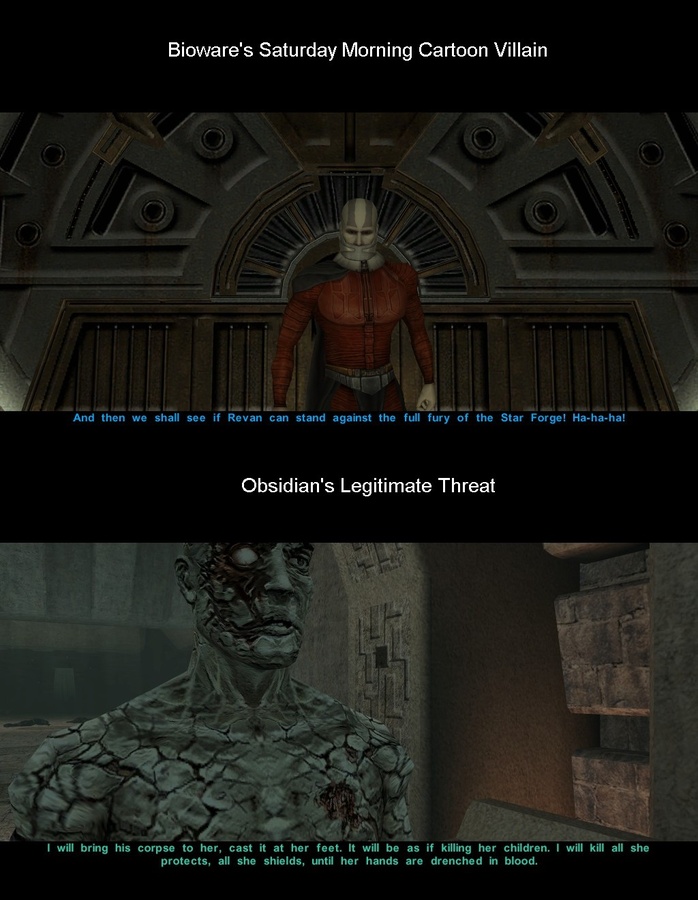Actually, Kaer Morhen whilst getting the pace right, is the beginning of were things go wrong. If you romance Triss, she says she'll meet you at Kaer Morhen but is not there when you arrive. By not putting her where she's meant to be, the game looses out on relationship exploration across several characters. It fails to develop the romance between her and Geralt further, it fails to explore the relationship between her and Yennefer, after all, Triss slept with her best friend's partner, the very least you'd expect is an exchange of words. When Ciri arrives, it fails to explore the relationship of Yen, as Ciri's mother, of Triss, as Ciri's sister, of Vesemir, as Ciri's favourite Uncle. When Vesemir dies, it fails to successfully deal with the relationship both Geralt and Triss had with him, choosing only to focus on Ciri's relationship with him.
Act 2 was the point in the game were there was sufficient down time to explore these relationships. It was a time were Yen and Geralt could have discussed their time with the Wild Hunt, were we could have learned about Geralt riding with them. We could have seen just how complex a love life Geralt has with Triss and Yen having a confrontation, it could have explored Ciri's relationship with the two women by (for example) having her play peace maker. Once you get to Act 3, you then build up the relationships between Geralt and Avallac'h, and Ciri and Avallac'h. You explore the Aen Elle in greater detail, delve in to Eredin's motivations for his actions, all of which builds up the characters to an explosive confrontation at the end of the game.
Again, to come back to Star Wars, look at the confrontation of Luke and Vader in cloud city (or whatever it's called) and you have that explosive bombshell - "No, Luke, I am your father" - that suddenly added more poignancy to their final confrontation. Where was that moment in this game? Were the relationship between Geralt and Eredin suddenly had its ante upped? All we had was a shallow antagonist who was incredibly easy to defeat at the end. You can't even call it an anti-climax because it was never built up in the first place.
If Act 2 was where it began to go wrong, Act 3 was where the wheels well and truly fell off because it utterly failed to build any tension for the main plot whilst strangely being very successful in doing that for Radovid's assassination which successfully develops the relationships between Philippa and Dijkstra, Philippa and Radovid, and Dijkstra, Roche and Thaler whilst completely ignoring the relationships central to the plot. So instead the main plot meanders through the act, with you going through the trouble to rescue two sorceresses, one of whom dies in the cell anyway, the other who only has a few lines in one scene. You have Triss casually going along with the rebuilding of a Lodge she helped tear down for no other reason other than contrivance to determine whether Ciri lives or dies at the end of the game rather than developing the interpersonal relationships between the key characters of the story.
So to once more clarify, I enjoyed the game play, I just felt let down by the story.
Yeah the story is a let down,for this i give you a big cookie




